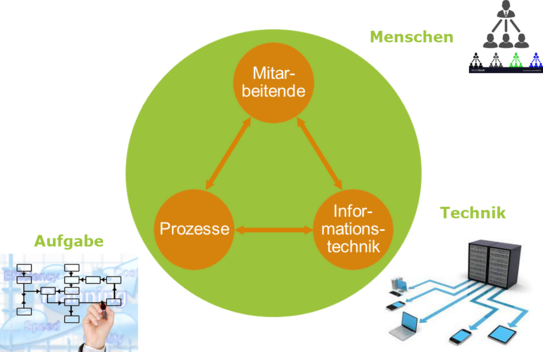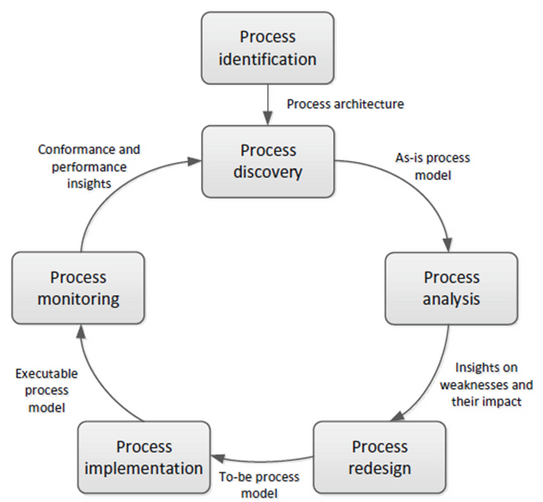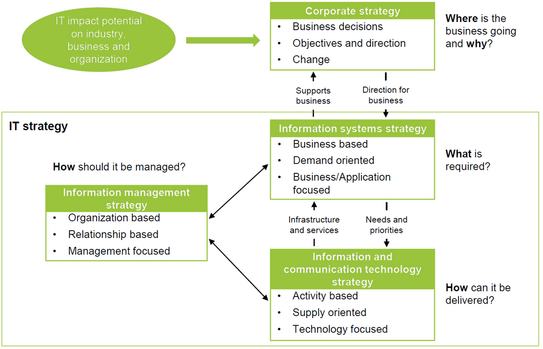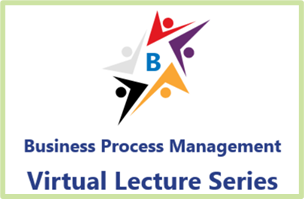Lectures
Business Information Systems
The lecture offers an introduction to business informatics as an independent discipline that explains and designs scientifically based socio-technical systems comprising human and machine components (subsystems) in business and society. Concrete examples of human-task-technology systems are treated, which contribute to the decision-making, coordination, management and control of value-added processes as well as their automation, integration and virtualization under especially economic criteria. Systems from various areas are examined as examples: Enterprise Resource Planning, Customer Relationship Management, Supplier Relationship Management, but also Business Analytics and Business Process Management.
Students should be able to give differentiated lectures on the collection, structuring, processing, provision, communication and use of data, information and knowledge as well as their transformation. Furthermore, they will be able to assess product, process and business model innovations on the basis of current technological trends.

Business Process Management
The module covers economic, organizational and technical fundamentals of business process management based on the process life cycle: process identification, business process modeling, process survey, process analysis, process improvement, process technology and process monitoring. Concepts, methods and tools of business administration, computer science and engineering are presented as part of an integrated and interdisciplinary approach.
Students acquire basic knowledge of how business processes are collected, documented, analyzed, improved and monitored, taking into account not only technological features of process-driven information systems, but also economic and organizational aspects. This enables students to plan and carry out process-oriented work in IT projects, to develop and operate process-oriented information systems and thus to work as process managers or chief process officers. Furthermore, the students should find their way around the field in such a way that they are able to locate, understand and apply related methods and procedures that go beyond those of the lecture or are only dealt with in excerpts there, depending on the task. In the exercise, which is closely linked to the lecture, the students are to learn how to use current process automation and process analysis environments. They should be able to create their own applications based on the concepts and techniques learned.

Current Topics in e-Services
The module deals with current special aspects of enterprise computing. The respective contents of the lecture will be announced in time via the annotated course catalog.
Examples for past semesters:
Students shall acquire theoretical and practical knowledge in special aspects in the context of enterprise computing or deepen their knowledge in another area of computer science that complements enterprise computing.

IT Management

The course teaches the basics of IT management consisting of strategic and operational IT management and provides an introduction to topics such as IT strategy, business-IT alignment, IT governance, IT service management, enterprise architecture management, IT outsourcing, IT project management and IT maturity management.
The course aims to provide students with methodological knowledge of the strategic and operational management of IT. This includes both the ability to assess IT as a strategic resource in relation to industry competition and to manage IT in terms of continuous architecture or service management or IT project management.
In the accompanying exercises, which may be of a seminar nature, the students work independently on supplementary topics in the field, or deepen their knowledge through practical exercises.
Selected Topics of Enterprise Computing

The module deals with current special aspects of enterprise computing. The respective contents of the lecture will be announced in time via the annotated course catalog.
Examples from past semesters:
Students shall acquire theoretical and practical knowledge in the context of current developments in enterprise computing or deepen their knowledge in another area of computer science that complements enterprise computing.

![[Translate to English:] [Translate to English:]](/storages/zentraler_bilderpool/_processed_/9/d/csm_Kopfbild_Audimax_471c826c6c.jpg)